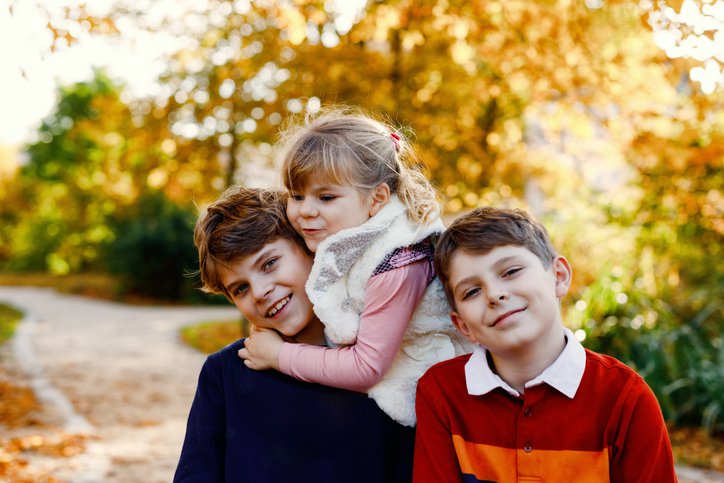Study reveals which sibling most likely to display disruptive behaviour
Updated | By Jacaranda FM
Who is more likely to cause family drama: the first, middle or last born?

There have always been theories about sibling behaviour.
LISTEN: Woman explains how children caused breakup
Is the eldest the most responsible and accomplished?
Do the youngest siblings always get what they want?
Are middle siblings always the most chaotic and reckless?
Let's not even get started on only children...
WATCH: Facial abnormality is the new must-have beauty look
Society has placed these labels and expectations on the sibling order without much to back it up.
Until now.
A study from the National Bureau of Economic Research, led by MIT economist Joseph Doyle, examined families from vastly different areas.
READ: International car brand making return to South Africa
The families were from Denmark and Florida, which differ in culture and schooling system, but the results were remarkably consistent.
The research found that second-born sons were 20% - 40% more likely to be disciplined in school and come into contact with the criminal justice system than their older siblings.
READ: 10 things you should never put in an air fryer
Not only did they find that second-born siblings were more disruptive, but more specifically, second-born boys.
The findings show that the results were the same compared to siblings from the same family. This means that external factors such as healthcare, parental income or school quality are not to blame.
This proves significant as when a child is born into a family seemingly outweighs where the child grows up.
The outcomes tracked by the study included school suspensions, truancy and incarceration.
WATCH: Experts reveal whether you should try new TikTok health trend
In Denmark, second-born boys were 40% more likely to receive a prison sentence by age 21 than firstborns, and in Florida, they were 72% more likely to be suspended from school.
This does seem slightly mind-boggling, so what's causing it?
After examining various potential causes, from birth complications to differences in school quality, they were all ruled out.
READ: Checkers unveils SA's first-ever smart trolley
Second-borns, on average, were healthier and attended the same school as their siblings, often even attending better schools.
The researchers did find a difference in parental time investment, with firstborns receiving more one-on-one time and attention from their parents.
When the second sibling comes along, it's only natural for attention to be divided, but the firstborn often continues receiving more intensive parental care.
WATCH: Jonas brothers reveal strange habits and sexy secrets
This unbalanced early investment could affect the development of non-cognitive skills, including emotional regulation and impulse control. These traits strongly link to behavioural outcomes in later life.
Of course this does not mean that all second-born children are troublemakers.
The aim of this study was to enourage a more nuanced view and highlight that birth order does subtly shape childhood experiences.
It simply suggests that if you are raising more than one child, you could reflect on how your time and attention is spent between each child.
Tune in to 'The Drive with Rob & Roz', on weekdays from 16:00 – 19:00. Stream the show live here or download our mobile app here.
Listen to Jacaranda FM:
- 94.2
- Jacaranda FM App
- http://jacarandafm.com
- DStv 858/ OpenView 602
Follow us on social media:
Image: iStock
More on Jacaranda FM
Show's Stories
-
Study reveals which sibling most likely to display disruptive behaviour
Who is more likely to cause family drama: the first, middle or last born?
The Drive with Rob & Roz an hour ago -
International car brand making return to South Africa
South Africa might soon welcome back a subsidiary of India’s largest aut...
The Drive with Rob & Roz 2 hours ago